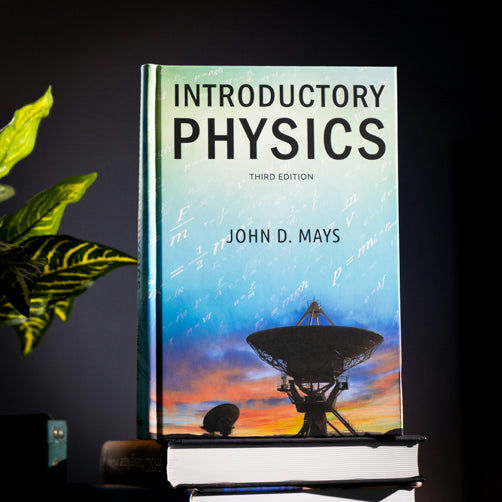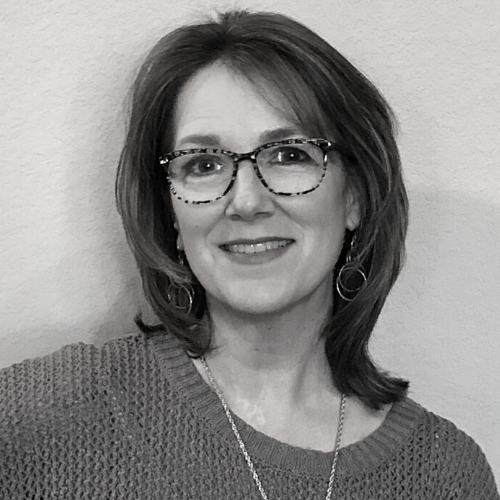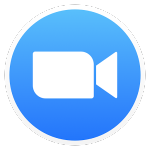Introductory Physics

Required Materials:
Books and supplies are not included in the purchase of the course.
- Text: Introductory Physics
- Answer Key (Student version; Not the complete teacher version): Solutions Manual to Accompany Introductory Physics. Rebekah L. Mays and John D. Mays
- Lab Reports: The Student Lab Report Handbook-A Guide to Content, Style, and Formatting for Effective Science Lab Reports by John D. Mays
- A list of Lab materials will be provided two to three weeks before each lab
- Bound composition style Lab Journal with grid paper
- Scientific Calculator
- Binder with 2 x 2 graph paper and notebook paper
- Microsoft Word, PowerPoint, and Excel (or equivalent software)
- Ability to create PDF files for submitting coursework is required
- Printer with scanner (ability to print worksheets and scan homework)
- Digital tablet such as: Wacom Intuos, Huion, XP-Pen, or other.

Mr. Jonam Walter
[email protected]Jonam Walter received a Bachelor of Science in Interdisciplinary Physics from Haverford College and an M.S. degree from the University of Illinois at Urbana Champaign in Agricultural Engineering. While at UIUC, he worked as an engineer for John Deere where he did testing with automated equipment.
Jonam has been involved in teaching from a young age, assisting his father in homeschool classrooms with the younger grades. He has continued teaching math and the physical sciences throughout his career both in one on one tutoring and in larger classroom settings. As a TA at UIUC he taught extensively online and helped students navigate the transition to online learning.
Currently, Jonam lives near Thermopolis, Wyoming and runs a bio-diverse vegetable and livestock farm with his wife, Joy. They decided to start farming so that they could homeschool and work along side their new son in a calm environment that highlights God’s nature. Jonam also enjoys designing and building furniture, reading, and hiking.
.png?cache=false)
Mrs. Laura Pavlik
[email protected]Laura Pavlik holds a B.A. in Physics and Mathematics as well as an M.Ed. in Science Education. She taught science in the public school system for four years before leaving to raise her own children. She has always loved discovering the beauty with which God has filled the natural world and enjoys seeking the answers to interesting questions: both her own and any that might be posed in her presence.
She also finds joy in writing, gardening, making bread, watching her children play in the woods, swing dancing, and playing board games.
.png?cache=false)
Mr. Marv Retzer
[email protected]Marv Retzer, Chemistry Instructor, began teaching in 1977. He holds a Bachelor of Science degree in Elementary Education from Grace College, a Master of Arts degree in Christian School Administration from Grace Theological Seminary and completed EdD (ABD) studies at Ball State University in Educational Leadership with a Curriculum cognate. Mr. Retzer began his undergrad studies in medical research before switching to Elementary Education and, with his extensive Math and Science background, has taught MS-HS Math and Science classes for over 20+ years in addition to work in administration. Mr. Retzer’s personal scientific “love” is for Chemistry and he was privileged to receive a summer Eisenhower Fellowship in the 1980’s to study Microscale Chemistry at MIT in Boston. “All things were made through Him, and without Him was not anything made that was made.” (John 1:3 ESV) Mr. Retzer’s goal is for all students to see the majesty and power of God in creation through the study of Science.

Mrs. Sherry Joslin
[email protected]Sherry Joslin earned her BS in Electrical Engineering from the University of Arkansas and holds a MA in Science and Religion from Biola University. She and her husband Brian live just south of Forth Worth in Burleson, Tx.
With over 12 years of experience in the classroom and as a homeschool mom, she has taught every grade K through 12th. Her classroom experience includes Logic, AP Physics, Honors Geometry, Algebra, Singapore Math and more. Prior to teaching, Sherry worked in Mission Control as a NASA engineer. When asked why she left, she explains that children are far more complicated than space shuttles, and that her greatest accomplishment has been in the role of mentoring and educating her three children who are living for Christ as young adults.
Sherry is passionate about showing students how the relationship between faith and science is not one of conflict but of qualified agreement; and before attending university, students should be confident that the Christian worldview provides a coherent understanding of both reality and their place in it as children of God.
![]() Computer: You will
need a stable, reliable computer, running with a processor with a speed of 1 GHz or better
on one of the following operating systems: Mac OS X with Mac OS 10.7 or later; Windows 8,
7, Vista (with SP1 or later), or XP (with SP3 or later). We do not recommend using an
iPad or other tablet for joining classes. An inexpensive laptop or netbook would be much
better solutions, as they enable you to plug an Ethernet cable directly into your computer.
Please note that Chromebooks are allowed but not preferred, as they do not support certain
features of the Zoom video conference software such as breakout sessions and annotation,
which may be used by our teachers for class activities.
Computer: You will
need a stable, reliable computer, running with a processor with a speed of 1 GHz or better
on one of the following operating systems: Mac OS X with Mac OS 10.7 or later; Windows 8,
7, Vista (with SP1 or later), or XP (with SP3 or later). We do not recommend using an
iPad or other tablet for joining classes. An inexpensive laptop or netbook would be much
better solutions, as they enable you to plug an Ethernet cable directly into your computer.
Please note that Chromebooks are allowed but not preferred, as they do not support certain
features of the Zoom video conference software such as breakout sessions and annotation,
which may be used by our teachers for class activities.
![]() High-Speed Internet Connection:
You will also need access to high-speed Internet, preferably accessible via Ethernet
cable right into your computer. Using Wi-Fi may work, but will not guarantee you the optimal
use of your bandwidth. The faster your Internet, the better. We recommend using a connection
with a download/upload speed of 5/1 Mbps or better. You can test your Internet connection here.
High-Speed Internet Connection:
You will also need access to high-speed Internet, preferably accessible via Ethernet
cable right into your computer. Using Wi-Fi may work, but will not guarantee you the optimal
use of your bandwidth. The faster your Internet, the better. We recommend using a connection
with a download/upload speed of 5/1 Mbps or better. You can test your Internet connection here.
![]() Webcam: You may
use an external webcam or one that is built in to the computer. Webcam Recommendations:
Good (PC only) | Best (Mac and PC)
Webcam: You may
use an external webcam or one that is built in to the computer. Webcam Recommendations:
Good (PC only) | Best (Mac and PC)
![]() Headset: We recommend
using a headset rather than a built-in microphone and speakers. Using a headset reduces the
level of background noise heard by the entire class. Headset Recommendations: USB | 3.5mm
Headset: We recommend
using a headset rather than a built-in microphone and speakers. Using a headset reduces the
level of background noise heard by the entire class. Headset Recommendations: USB | 3.5mm
![]() Zoom: We use a web
conferencing software called Zoom for our classes, which enables students and teachers to
gather from around the globe face to face in real time. Zoom is free to download and easy
to use.
Zoom: We use a web
conferencing software called Zoom for our classes, which enables students and teachers to
gather from around the globe face to face in real time. Zoom is free to download and easy
to use.  To
download Zoom:
To
download Zoom:
- Visit zoom.us/download.
- Click to download the first option listed, Zoom Client for Meetings.
- Open and run the installer on your computer.
- In August, students will be provided with instructions and a link for joining their particular class.
![]() Scanner: In this
class, students frequently submit homework assignments by scanning pages from their workbooks.
Students and/or their parents should have easy access to a scanner and the ability to use it.
Scanner: In this
class, students frequently submit homework assignments by scanning pages from their workbooks.
Students and/or their parents should have easy access to a scanner and the ability to use it.
Step 1
Step 2
Step 3
Step 4
Explore our courses!
First, read the available course descriptions, noting prerequisites, target grades, and course objectives. If you think your student is prepared for the course, go ahead and register. After registration, a placement assessment may be provided to students, depending on the course and the student's previous enrollment with Scholé Academy. Registration is finalized when the student's placement assessment has been returned by the course instructor with placement confirmation.
All Courses | By Grade
Read the Student-Parent Handbook.
Please take careful note of our teaching philosophy, our technology requirements, our school policies, the parent agreement, and the distinctions between our grade levels.
Double-check the course section dates and times.
Make sure they don't conflict with other activities in your schedule or other courses you are purchasing. Our system will not catch double-bookings!
You're ready to add course selections to your cart!
Our Assistant to the Principal will be in touch with you after your enrollment to help you with next steps, including any placement evaluations that may be required for your course selections.
This registration will be finalized when the student's placement assessment has been returned by the course instructor with placement confirmation.
